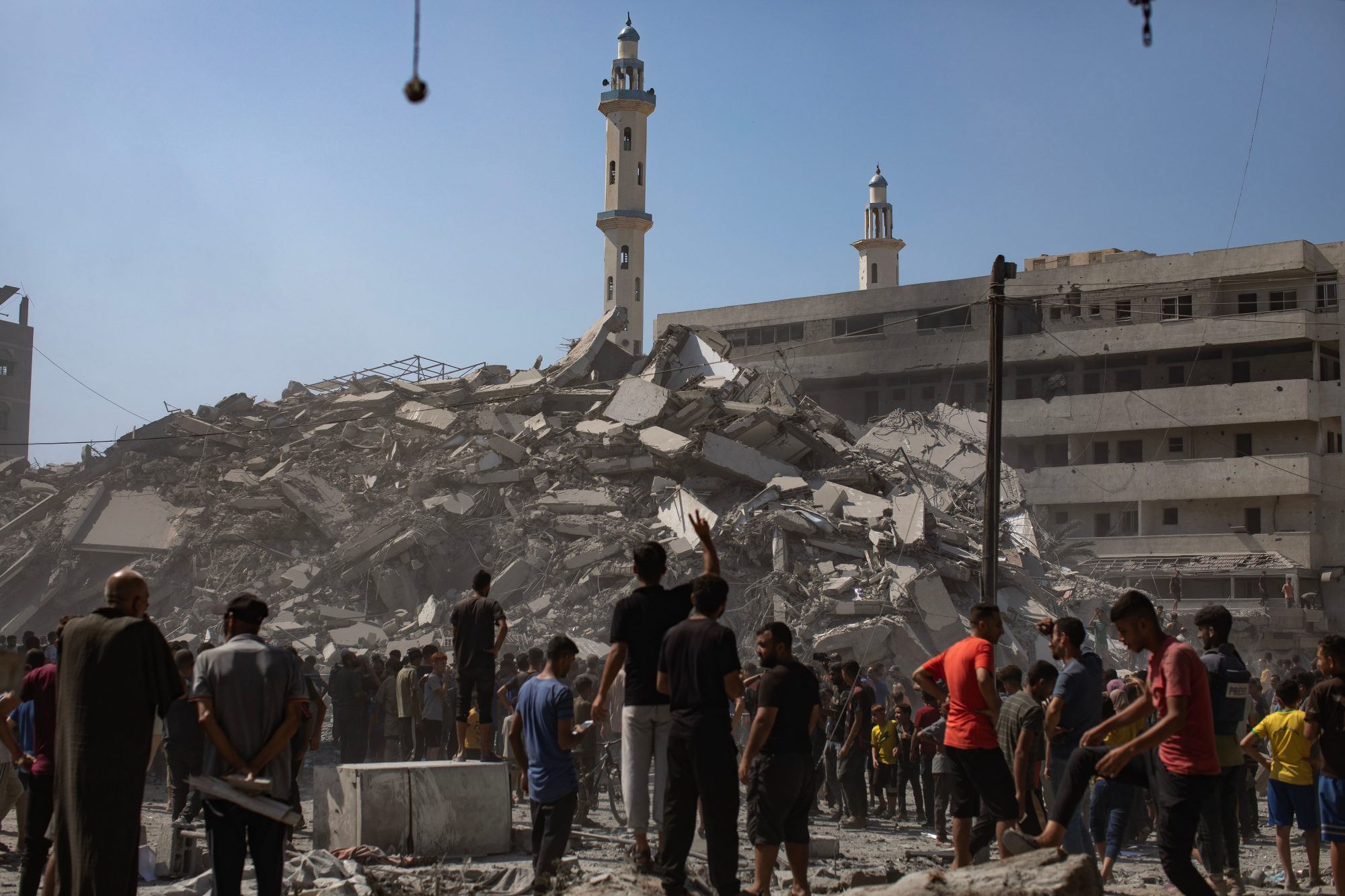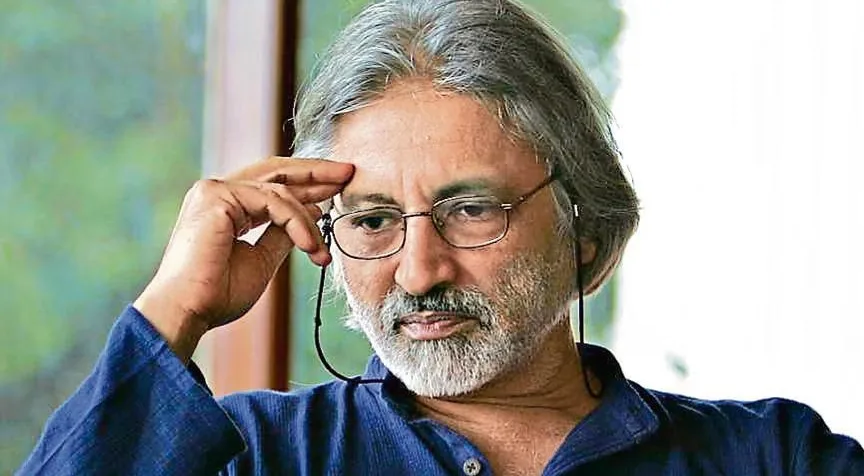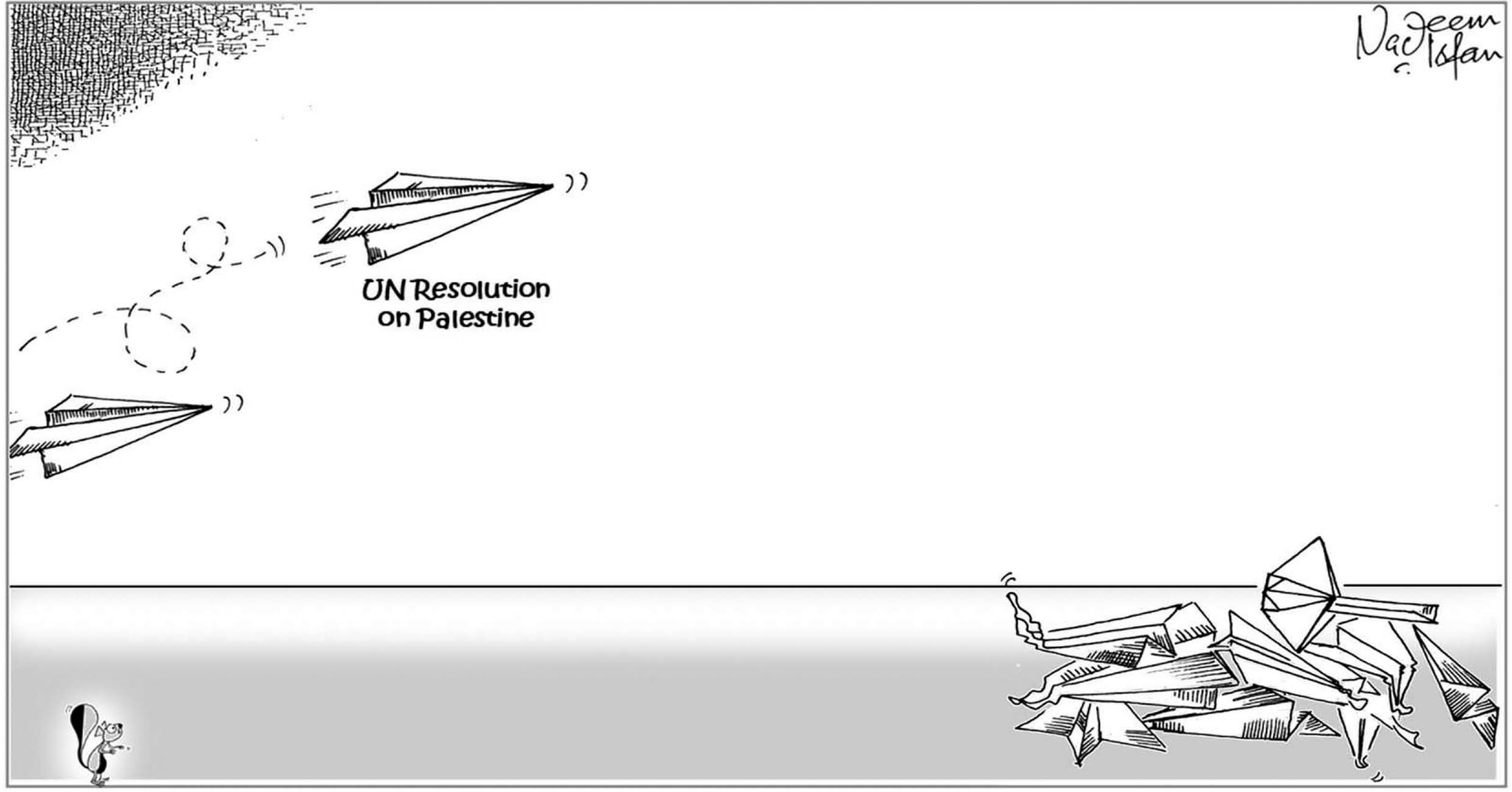By Georgina Lee
Copyright

A panel of experts commissioned by the United Nations (UN) says Israel has committed acts of genocide in Gaza since 7 October 2023.
The Israeli foreign ministry says the Commission’s report is “distorted and false” and based “entirely on Hamas falsehoods, laundered and repeated by others”.
How is genocide defined?
The Genocide Convention sets the definition of genocide for the purposes of international law. It took effect in 1951.
It says that if a state commits any one of the following five acts with the intention of destroying “in whole or in part, a national, ethnical, racial or religious group”, then it has committed genocide:
“Killing members of the group”
“Causing serious bodily or mental harm to members of the group”
“Deliberately inflicting on the group conditions of life calculated to bring about its physical destruction in whole or in part”
“Imposing measures intended to prevent births within the group” or
“Forcibly transferring children of the group to another group”
Palestinians have previously been classified as a group for the purposes of the Genocide Convention.
What did the UN Commission say about Israel committing genocide?
The UN Independent International Commission of Inquiry said today that, between 7 October 2023 and 31 July 2025, Israel committed four of the five acts of genocide against Palestinians in Gaza outlined in the Genocide Convention.
These are: killing, causing serious bodily or mental harm, deliberately inflicting conditions calculated to bring about physical destruction, and preventing births. The Commission said it had not found evidence of forcible transfer of children. (Though as the Genocide Convention makes clear, genocide occurs when any of the five acts is committed – there is no requirement for all five to take place in order to say that a state has committed genocide.)
The Commission’s report includes many pages of evidence to support its findings on each of the four genocidal acts. It says all of its conclusions are based on the same threshold as its previous reports: that there are “reasonable grounds to conclude” that the events happened as it describes.
On the first act – killing members of the group – the Commission says this “occurred mainly through three different means: (i) killing through attacks against protected objects (such as civilian homes and healthcare facilities) where civilians were present; (ii) targeting civilians and other protected persons, for example, during the evacuations, within safe zones or at shelters; and (iii) deaths due to the deliberate infliction of conditions of life (such as the blockade of medicine and medical equipment and humanitarian aid from entering into Gaza)”.
On the second act – causing serious bodily or mental harm – the Commission writes that “the Israeli security forces have intentionally inflicted serious bodily and mental harm on the Palestinians in Gaza”. It says it’s “reasonable to conclude” that this was deliberate given, among other things, “the extent and duration of military operations, the foreseeable harm suffered by the victims, the means and methods of warfare employed, the widespread and systematic sexual and gender-based violence, and the Israeli authorities’ refusal to alter the nature of its military operations despite serious warnings by international courts and other international bodies and by human rights experts”.
On the third act – deliberately inflicting conditions calculated to cause physical destruction – the Commission finds that “Israeli authorities were aware of the high probability that their military operations, the imposition of a total siege, including the blocking of humanitarian aid into Gaza, and the destruction of housing and of health systems and facilities would lead to the physical destruction of Palestinians, in whole or in part, in Gaza”.
On the fourth act – imposing measures intending to prevent births – the Commission focuses on an incident involving an IVF clinic in Gaza, which was shelled in December 2023, “reportedly destroying around 4,000 embryos and 1,000 sperm samples and unfertilised eggs”. The Commission says, based on evidence it has gathered, “it is reasonable to conclude that the Israeli security forces knew of the function of the clinic and intended to target it and destroy the reproductive material within.”
Israel’s military said: “no other country has operated in these conditions and done so much to prevent harm to civilians on the battlefield.”
Who are the UN-commissioned experts who say Israel has committed genocide?
The report doesn’t come directly from UN staff – it’s the result of work led by three human rights experts, South African Navanethem Pillay, Indian Miloon Kothari, and Australian Chris Sidoti.
The Commission was established in 2021 to: “investigate, in the Occupied Palestinian Territory, including East Jerusalem, and in Israel, all alleged violations of international humanitarian law and abuses of international human rights law”.
Responding to today’s report, Israel’s foreign ministry said the Commission were acting as “Hamas proxies”.
Though it’s worth saying that the Commission has previously accused Hamas and other Palestinian armed groups of war crimes, including “intentionally directing attacks against civilians” and hostage-taking on 7 October 2023. It also “conclude[d] on reasonable grounds” that members of Hamas, other armed Palestinian groups or Palestinian civilians, had committed sexual violence as part of the attacks. Hamas rejected the allegations.
What does UN report mean for other countries?
The Genocide Convention doesn’t just oblige states not to commit genocide themselves – other countries are required to prevent and punish it when they see it.
The Commission report says that every country in the world has been “on notice” since “at least” 26 January 2024, when the International Court of Justice (ICJ) said there was “a real and imminent risk” that Palestinians in Gaza would have their rights to be protected from genocide violated.
The Commission concludes “the duty to prevent genocide was triggered” on that day and countries might find themselves responsible if they didn’t take all reasonable steps to stop it.
The panel urges all countries to “employ all means reasonably available to them to prevent the commission of genocide in the Gaza Strip” and to stop arms sales to Israel where there is reason to believe they’ll be used in genocide.



